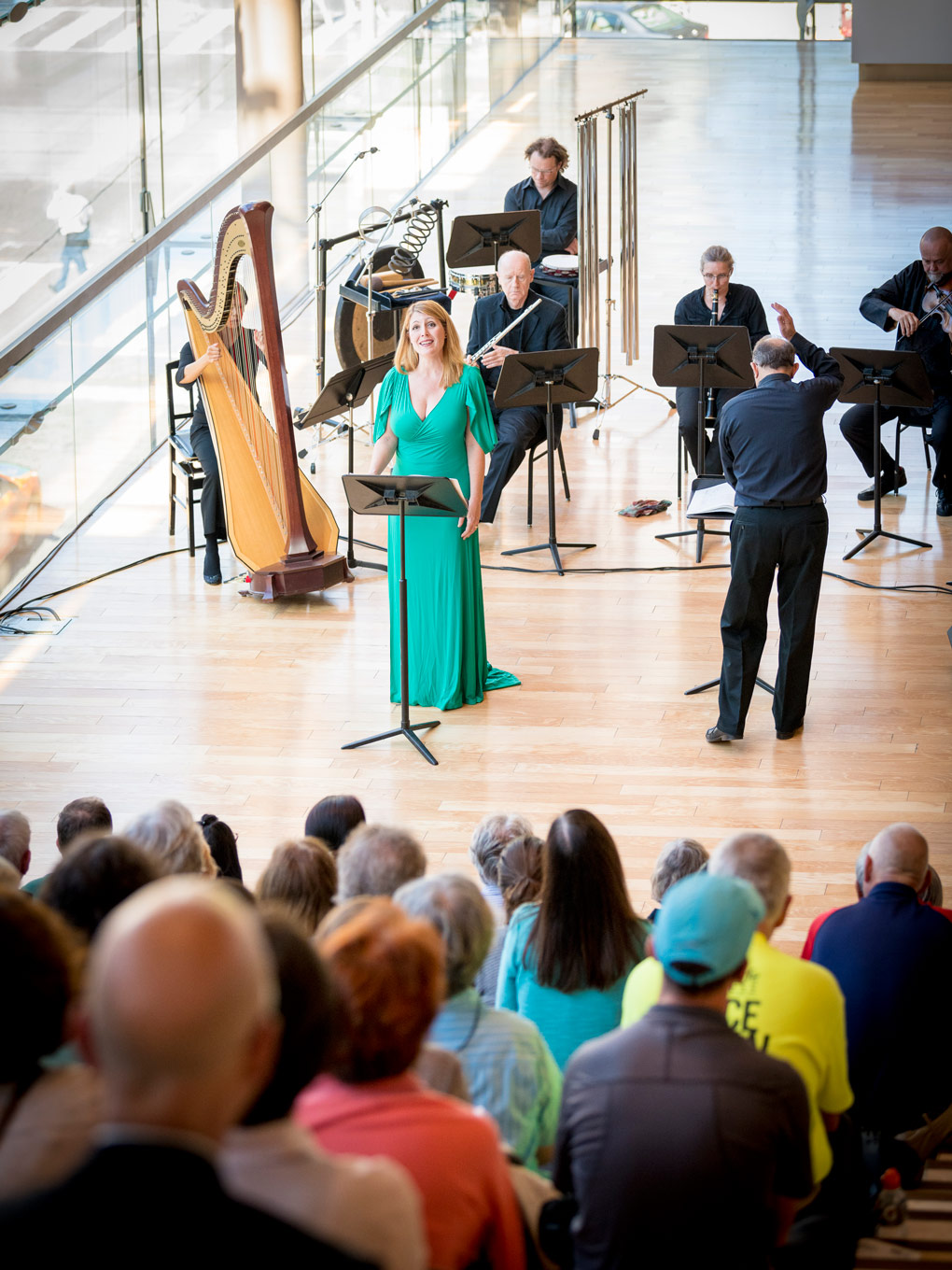
Folk songs for lunch: Esprit Orchestra & Krisztina Szabó in the RBA
ReviewBefore their 35th anniversary season starts on October 15, the Esprit Orchestra gave a taste of what they do best as part of the Canadian Opera Company’s Free Concert Series in the Richard Bradshaw Amphitheatre.
Esprit is Canada’s only full-sized orchestra dedicated to performing new and existing work by Canadian composers, and presenting Canadian premieres of leading international composers of our time. Their lunchtime programme was a Canadian-international mix, featuring a chamber-sized group of players from the full Orchestra. Percussionist Ryan Scott gave us Orion Constellation Theory, written by Canada’s Andrew Staniland in 2014 for snare and electronics. Staniland has a knack for incorporating novel sounds and fun in his music; the very cool effect was that of an amplified snare drum, or an invisible orchestra which achieved a surprising blend of recorded and live sounds. Alexina Louie’s From the Eastern Gate, written for solo harp in 1985, has traveled well through three decades. Harpist Sanya Eng’s performance was refreshing and airy, a great foil to the aggressive snare sounds.
The condensed Esprit Orchestra brought to the stage mezzo-soprano - and fellow Canadian/contemporary music champ - Krisztina Szabó, for Luciano Berio’s Folk Songs (1964). The song cycle is a bit of a misnomer, since two of the “folk songs” are written by Berio himself, and two more are by “Dean of Balladeers” John Jacob Niles. But false advertising aside, the songs still manage to pull that folk-song nostalgia out of an audience. Berio’s settings are brittle, fragmented orchestrations of familiar tunes, impossible to place in a specific time or place.

Szabó took a cue from folk-song performance practice, keeping things simple and all about storytelling. She found ease in her role among Berio’s varied sound worlds, and let her listeners settle in to what’s familiar in these songs: the tunes. The light-filled, close-up environment of the Amphitheatre is unnerving for many artists, but Szabó is a performer who relishes the chance to step into her audience’s personal space. With direct eye contact and no qualms about making aggressive sounds, hearing Szabó in a setting like this is the best kind of artistic challenge.
The only regret: that the concert programme didn’t treat us to translations of the multi-lingual songs. (A close runner-up for printed translations: Szabó’s expressive eyebrows.)
The COC’s Free Concert Series continues all season long with lunch-hour concerts for all audiences. CLick here to look at the full series line-up.


Comments